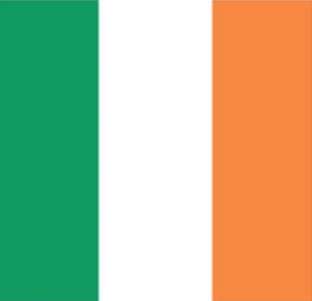Ireland — Developing a National Action Plan Against Racism (2021)
Ireland’s Independent Anti-Racism Committee published an interim report as part of the development of a new National Action Plan Against Racism.
Established by the government in 2020, the Independent Anti-Racism Committee has a mandate to review current evidence and practice and make recommendations to the government on how best to strengthen its approach to tackling racism, including through drawing up a new Action Plan Against Racism for Ireland.
In this report the committee lays out the context of its work and the guiding principles it has adopted. These are informed by the human rights and equality principles of participation, non-discrimination, diversity and intersectionality.
The committee makes three recommendations for immediate action:
- Remove the state’s reservation to Article 4 of the Convention on the Elimination of Racial Discrimination (CERD), which relates to the compatibility of Article 4 with the right to freedom of expression (the committee has demonstrated that the article is compatible, thanks to recent clarifications);
- Take steps to put in place ethnic equality monitoring across all public services;
- Remove all barriers to accessing support for migrant women experiencing gender-based violence.
The committee also invites suggestions from stakeholder organisations and members of the public relating to areas they feel should be addressed in Ireland’s National Action Plan Against Racism.
Alongside this report the committee has published a consultation document, to explain what the consultation is about and to highlight some important issues that members of the public are invited to give their views on. These include:
- access to justice;
- all forms of media and communication, including new technologies;
- employment, education, health and accommodation;
- inclusion and participation.
The Commission’s Human Rights and Equality Research Programme with the ESRI has produced extensive research demonstrating consistent and significant levels of discrimination against minority ethnic people in the State and has documented racist attitudes across Irish society. Other research co-funded by the Commission and the Irish Research Council has examined the nature and prevalence of racially loaded discourse across Ireland’s digital sphere.
The research identified a wide range of communities to be targeted by online racist speech in Ireland: anti-immigrant and anti-refugee discourses focusing on access to welfare and housing are common; discourses stereotyping, dehumanising, and denigrating Roma and Travellers were found to be ‘pervasive’; and Islamophobic, anti-Black, and antisemitic racist discourse was also identified.
NGO reports indicate that racism increased in 2020, with a particular growth in reports related to online racism via social media platforms. The provision of services for victim of racism is, therefore, increasingly essential. Supports need to have sufficient resources
and staffing to offer tailored services responding to specific intersectional experiences as
well as different types of racism, such as anti-Traveller racism, anti-black racism,
Islamophobia and Antisemitism.



 NOA is co-funded by the Rights, Equality and Citizenship Programme (2014-2020) of the European Union
NOA is co-funded by the Rights, Equality and Citizenship Programme (2014-2020) of the European Union